The Effect of Cannabis on the Hippocampus
The use of cannabis for medical purposes is gaining momentum, especially its use as an analgesic and anti-emetic (e.g., as part of chemotherapy). Therefore, scientists are interested in the long-term consequences of its use for human body, and primarily impact on the functioning of the brain. Because cannabis significantly reduces the activity of neurons.
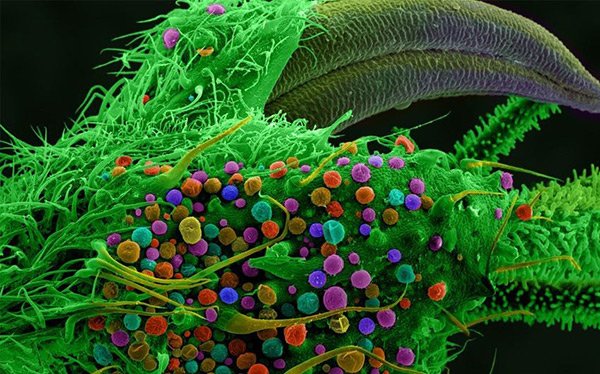
The death of memories
Recently, were conducted the studies, which show that long-term use of cannabis violates the blood flow in the brain and leads to memory impairment.
In the course of work, scientists examined people (256 participants), who have a long experience of the use of cannabis. In two tests: the resting state and during task execution on the concentration, scientists using computer tomography received images of the brains of subjects. After that, three-dimensional pictures of the participants from the experimental group were compared with pictures of healthy volunteers (92 people).
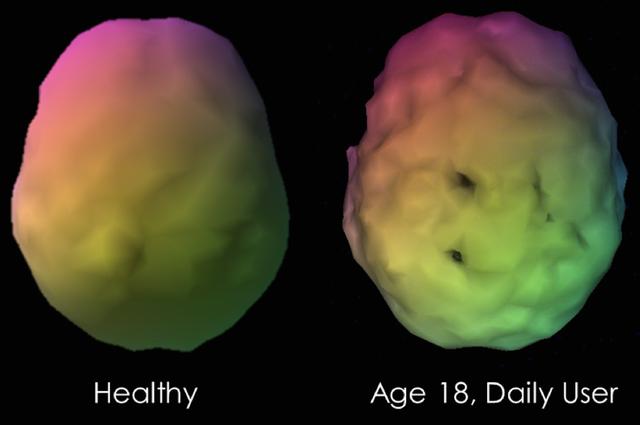
The results showed a decrease in blood flow velocity in the brain of subjects who consumed cannabis, most pronounced it was in the right hippocampus.
Compared with the control group, the blood flow in the right hippocampus was 13% worse when performing tasks on the concentration, and 17% in the resting state .
Some information about the hippocampus:
The hippocampus is one of the oldest systems of the brain. It's divided into right and left parts, is involved in the mechanisms of formation of emotions, memory consolidation (the transition of short-term memory into long term), generates theta rhythm while holding the attention. Another important function of the hippocampus is the storage and encoding of the surrounding space (spatial memory). In this connection, it is activated whenever it is necessary to keep focus on external benchmarks.
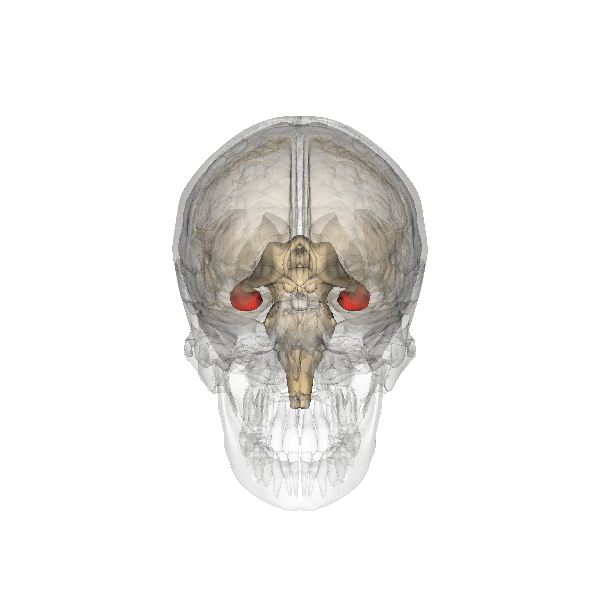
image source
According to another research: the left part responsible for working of memory, whereas the right one- to a greater extent operates as a filter to cut off unnecessary information for memorize and forms the attention to important objects. What indirectly confirms the first study.
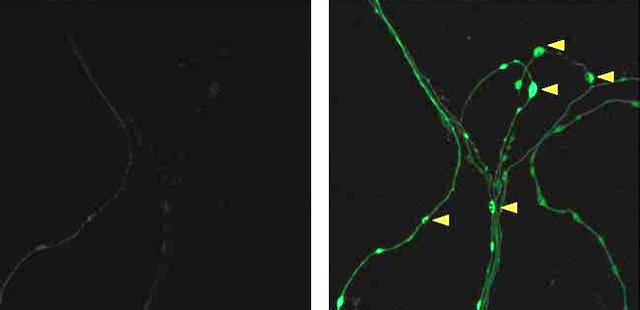
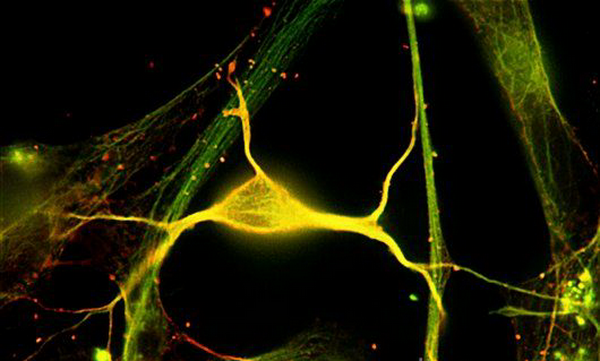
Previously were taken the photos of recording information in the brain that allowed us to understand how in General we remember new information: in the brain formed a unique physical chains of synapsis (connections between neurons), which are stored in the hippocampus and changed upon receipt of new memories.
Also the scientists found out how is the distribution of information in the brain. For example: in the memorizing of a single word are used about 100,000 neurons, distributed throughout the whole hippocampus. Ie the entire hippocampus is involved in creating memories, not some of its individual area.
The rate of formation of new neurons in the hippocampus for an adult is estimated at 1,400 neurons every day (on average we have 30 million neurons in this area). Due long-term use of cannabis, this figure starts to decline to 1200, and even 1000 neurons.
Interim conclusions
It is obvious that cannabis has quite a strong influence on the formation of new memories, due to the decrease in activity of the hippocampus, an even greater influence on concentration of attention (the right hippocampus). But, has not yet been carried out comprehensive studies on the question: can cannabis destroy the already formed neural and synoptic connections (old memories in long term memory)?
While it can be assumed that due to the deterioration of blood flow in the hippocampus, it reduces the ability to access old memories, and after the refusal of cannabis this function will normalized.
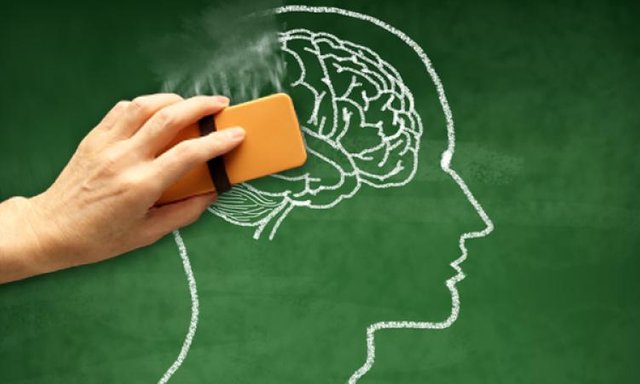
image source
Therefore, it is difficult to say: should people to abandon the part of memories, for the sake of getting rid of pain, or not?
But!
There is the interesting intersection of research: Cannabis impairs memory, but also reduces the accumulation in the brain of amyloid plaques (the main marker of Alzheimer's disease). One of the components of cannabis (Tetrahydrocannabinol) breaks down Amyloid beta and also reduces inflammation in brain cells. And Alzheimer's disease at its core is memory loss, first short term and then long-term.
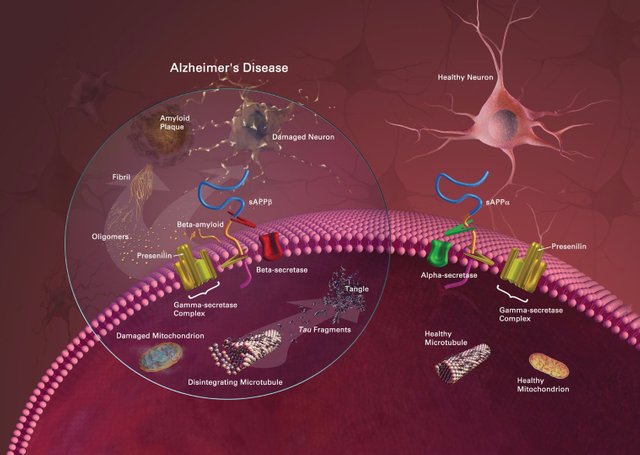
However the accumulation of amyloid plaques is not the cause but a symptom of the disease, their removal at an early stage may slow progression of the disease but not eliminate it.
We have a paradoxical situation: to prevent Alzheimer's disease, the doctors encourages us to constantly train our brain to increase intellectual activity, read books, play educational games...etc, to increases the creation of new neural connections, reducing the formation of Amyloid beta.
In the same time, one of the components of cannabis can also reduce the number of amyloid plaques. But cannabis affects the activity of the hippocampus, by reducing concentration and impairing memory - i.e., it strongly interfere with the intellectual activity and formation of new neurons, which increases the risk of developing Alzheimer's… We clearly don't have enough statistics data for a complete picture.
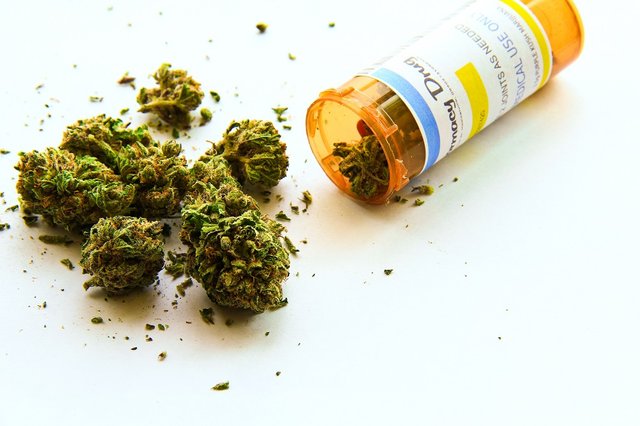
image source
Only in recent years that scientists are beginning to discover the potential of the cannabis, which contains 79 active components with different effects. Over the last decade was proved that this wonder herb helps in the treatment of many diseases. Here are some of the positive effects:
Glaucoma (decrease intraocular pressure), Improves lung health, Helps with epilepsy, Reduces the activity of cancer cells, Reduces level of anxiety, Slows the development of Alzheimer's, Reduces pain in multiple sclerosis, Reduces muscle spasms, Increases the effectiveness of treatment of hepatitis C, Treats inflammatory bowel disease (even in Crohn's disease), Reduces discomfort from arthritis, Improves metabolism (leading to low cholesterol), Reduces tremors in Parkinson's disease, Helps cope with post-traumatic stress, Protects the brain after a stroke, concussions and injuries, Reduces pain and nausea after chemotherapy and stimulates appetite.
sources: Brains memories cell, Tetrahydrocannabinol, Alzheimer's disease, Amyloid beta, Synapsis, Hippocampus, Oxford science blog, Single Convention on Narcotic Drugs, Marijuana compound removes alzheimers plaque from brain cells study, Cannabis and slow mind, Deficits in striatal dopamine release in cannabis dependence., Discriminative Properties of Hippocampal Hypoperfusion in Marijuana Users , Pharmacological activation of CB1 receptor modulates long term potentiation by interfering with protein synthesis., Sparse and distributed coding of episodic memory in neurons of the human hippocampus.

Thankfully the only day I ever think about is today. Great article though :)
A worthy philosophy! :)
Thank you.
Cannabis was used by people for thousands of years for a lot of reasons until 1936 when some powerful people have made some stupid rules and make it illegal.
It is true, unfortunately its reputation has been tarnished in the eyes of most, it began to look like a dope to be on high and nothing more.
It's interesting how people can transform something good like cannabis ( a plant used to heal lots of diseases) into something bad.( it's a drug) People must wake up !
They started to Wake up recently, after 50-60 years, but better late than never. As usual the reason for all is control and money.
Love the article, buddy! :)
Thank you, my frined :)
Good reading